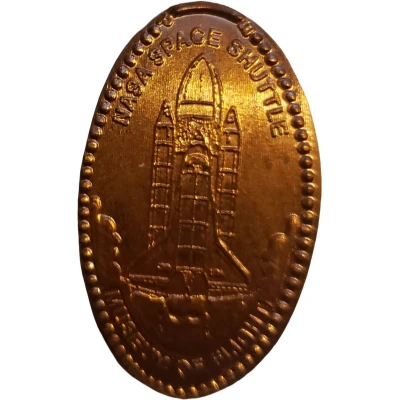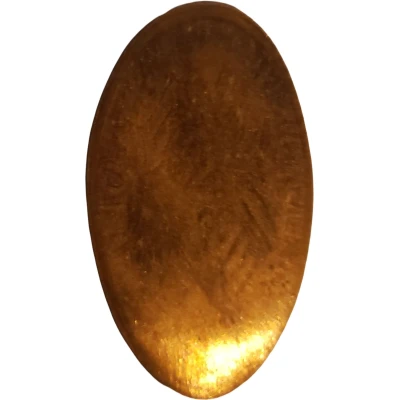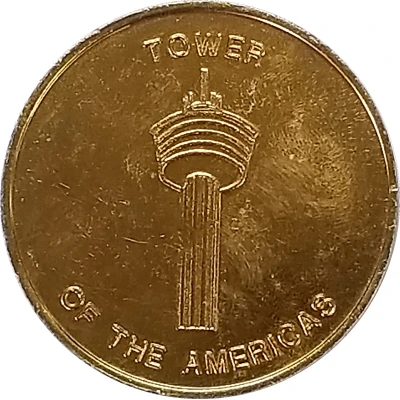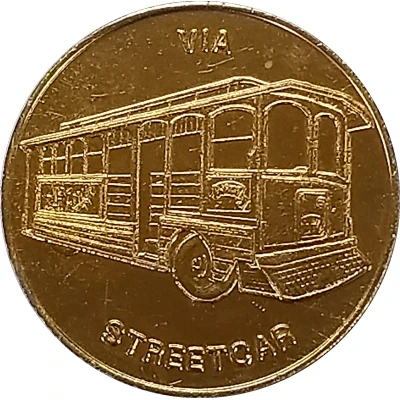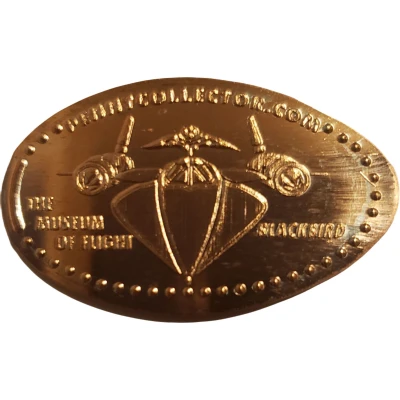
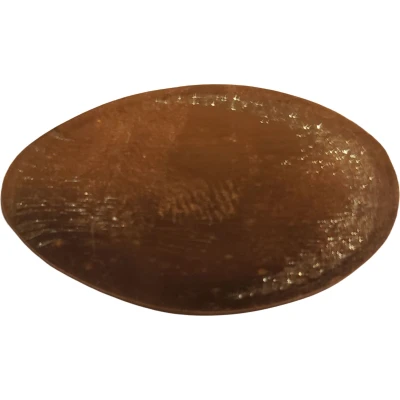

© Micheal Linke
Museum of Flight - SR-71 Blackbird (Seattle, Washington) ND
| Copper plated zinc (97.5% Zinc, 2.5% Copper) | 2.5 g | - |
| Location | United States |
|---|---|
| Period | Federal republic (1776-date) |
| Type | Souvenir medallions › Elongated coins |
| Composition | Copper plated zinc (97.5% Zinc, 2.5% Copper) |
| Weight | 2.5 g |
| Size | 32.98 × 19.25 mm |
| Thickness | 0.93 mm |
| Shape | Oval |
| Technique | Roller milled |
| Demonetized | Yes |
| Updated | 2024-11-12 |
| Numista | N#369281 |
|---|---|
| Rarity index | 97% |
Reverse
Blank.
Edge
Plain
Comment
Museum of Flight, Machine 5 (eight designs)SR-71 Blackbird
The SR-71 was developed as a black project from the Lockheed A-12 reconnaissance aircraft during the 1960s by Lockheed's Skunk Works division. American aerospace engineer Clarence "Kelly" Johnson was responsible for many of the aircraft's innovative concepts. The shape of the SR-71 was based on that of the A-12, which was one of the first aircraft to be designed with a reduced radar cross-section. Initially, a bomber variant of the A-12 was requested by Curtis LeMay, before the program was focused solely on reconnaissance. Mission equipment for the reconnaissance role included signals intelligence sensors, side looking airborne radar, and a camera; the SR-71 was both longer and heavier than the A-12, allowing it to hold more fuel as well as a two-seat cockpit. The SR-71's existence was revealed to the public on 24 July 1964, and entered service in January 1966.
https://en.m.wikipedia.org/wiki/Lockheed_SR-71_Blackbird
